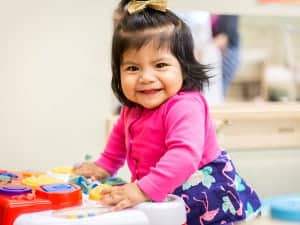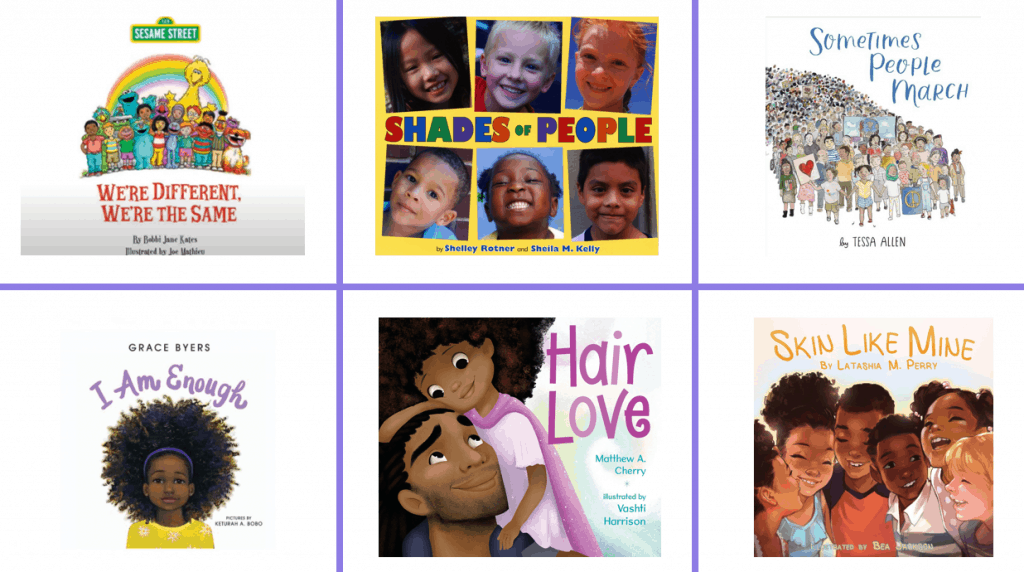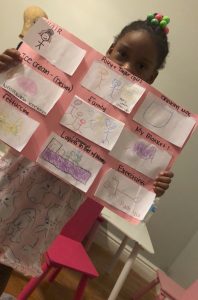Sheila Ater Capestany’s role as Chair of the Start Early Washington Community Advisory Committee is guiding the organization’s strategy to address the need for more equitable and just systems for Washington’s children, particularly those from underserved communities.
Background: Founding Open Arms Perinatal Services and Pioneering Maternal Health Equity
Sheila’s journey as a social justice advocate began with her experiences as a doula, where she provided compassionate support to families throughout the childbirth and early parenting process. This work revealed to her the critical gaps in care for low-income families and families of color. Driven by the belief that every parent deserves access to a safe, supported birthing experience, she helped found Open Arms Perinatal Services in 1997. Open Arms offers free to low-cost perinatal and early parenting support services to meet the needs of each family through highly qualified, culturally matched doulas, lactation support peer counselors, childbirth educators, and resource navigators, helping thousands of families receive culturally relevant care and empowering them to have healthy birthing experiences.
Open Arms has become a model for perinatal support, addressing social and cultural factors impacting maternal health outcomes and reducing disparities in maternal and infant mortality. The organization’s impact has extended far beyond the Pacific Northwest, inspiring similar initiatives across the country and proving the significant effect of culturally responsive care on parent and child health.

Best Starts for Kids: Shaping a Promotion Approach to Community Health
When King County, Washington voters approved the original Best Starts for Kids Levy in 2015, Sheila took the helm to help lead the cutting-edge initiative. Grounded in the idea that when communities invest in a future where all children, youth and young adults are happy, healthy, safe, and thriving, these strong starts in a child’s earliest years can be sustained through adulthood. By investing in early childhood development and youth resilience, focusing on promotion and prevention rather than just reactive responses, Best Starts for Kids is focused on more equitable allocation of resources to improve health, education, and socio-emotional outcomes for children and families facing systemic inequities, providing a pathway to long-term stability and well-being. Her work with Best Starts for Kids has not only improved lives but has also become a nationally recognized model for addressing the social determinants of health and supporting family resilience.
In 2019, Sheila helped establish King County’s first Children, Youth, and Young Adults Division and became it’s first Director, where she continues her work toward social and health equity.
Collaborating with Start Early and the Start Early Washington Community Advisory Committee
Furthering her advocacy for equitable early childhood education and development for children and families of color, Sheila joined Start Early Washington’s inaugural efforts in 2020 providing leadership as a member of Start Early’s national Board of Directors. As Chair of the Start Early Washington Community Advisory Committee, she has been instrumental in guiding the organization’s strategy to address the need for more equitable and just systems for Washington’s children, particularly those from underserved communities.
When the advisory committee launches in early 2025, it will bring together community leaders, parents, and advocates to provide insights that shape Start Early’s programs and initiatives. Sheila’s contributions emphasize the importance of culturally relevant, community-based approaches that acknowledge and address the unique challenges faced by families from diverse communities.
I believe deeply in the concept that disability rights organizers gave us - ’nothing about us without us’. It is critical for programs, initiatives, and policies to be shaped and defined by and with the communities who are impacted by those efforts. I am excited for the work of the Community Advisory Committee (CAC) to shape and guide how Start Early moves forward with our work.
Sheila Ater Capestany, Chair of the Start Early Washington Community Advisory Committee
Commitment to Systems Change in Public Health and Education
Sheila’s holistic approach across maternal health, early childhood education, and community advocacy has made her an influential voice for systems change, challenging institutions to better serve all members of the community.
Throughout her career, she has consistently advocated for systemic changes to support equitable social, health and early education outcomes. Sheila understands that policy changes and resource reallocation are necessary to tackle the root causes of inequity, especially for women, families, and children from marginalized communities. Her leadership has helped reshape community approaches to health and early education, making them more inclusive and equitable, and she has inspired policies that incorporate trauma-informed and culturally competent care.
Inspiring Future Leaders and Advocates
By focusing on the needs of marginalized communities and building support systems rooted in equity and compassion Sheila’s pioneering work has transformed maternal health support, early childhood education, and public health policies, setting new standards for equity and justice. As we launch our Community Advisory Committee, we look forward to Sheila’s partnership in our efforts to understand how we can best help families feel more empowered and a part of the process to create more equitable systems and support for children and families.
Learn more here about Best Starts for Kids and Open Arms Perinatal Services.
Washington State Hub
Learn more about our work in Washington state and access relevant resources and publications.
Stay Connected
Stay up to date on early childhood policy issues and home visiting programming in Washington state.
Resources for Professionals
From interactive courses to engaging events, we support educators in building powerful practices that transform teaching and learning.
To understand the Latino community is to understand that it is vastly diverse within itself. Each individual Latino culture is established within the country people are from, and cultures are kept and celebrated within each respective community while residing in the U.S.
Although many members of the Latino community speak Spanish, words mean different things based on their cultural origin and the individual education of each person. Acknowledging this diversity within the Latino community helps families feel welcomed and demonstrates inclusivity of all Latino cultures.
Stay Connected
Sign up to receive news, helpful tools and learn about how you can help our youngest learners.
 For young children, it’s important to show and appreciate the differences within each Latino community. Highlighting cultures by showcasing native attire, delicacies, country flags, differences in written language and general images of each culture help to create a shared understanding of what being a Latino means. This also helps Latino children create an identity and a sense of pride to be a Latino.
For young children, it’s important to show and appreciate the differences within each Latino community. Highlighting cultures by showcasing native attire, delicacies, country flags, differences in written language and general images of each culture help to create a shared understanding of what being a Latino means. This also helps Latino children create an identity and a sense of pride to be a Latino.
Hispanic Heritage Month is an opportunity for Latino children to understand the history of their family and their community. When speaking with a family in the native tongue, it creates a bond within the family unit that will help the child as they get older and learn to speak additional languages.
“Attire From Around the World” is an activity we like to do with the children and families we work with. Each child dresses up in an outfit that represents their nationality. Some students have worn Charo attire and folkloric dresses. Others braid their hair in a distinctive style or bring flags from their country to proudly display. We all love it when parents bring in food unique to their home country because it is a chance for all of us to sample special dishes and celebrate that culture! Children also love to take part in making pinatas – which are all created differently depending on what country they’re from.
Children’s Books to Read During Hispanic Heritage Month
Whether your child is a toddler, in pre-K or headed to kindergarten, here are books to read aloud with your little one to celebrate and learn about the Latino culture.
- My Colors, My World / Mis Colores, Mi Mundo by Maya Christina Gonzalez
- Dia En Que Descrubes Quien / The Day You Begin By Jacqueline Woodson
- The Day of the Dead / El Día de los Muertos: A Bilingual Celebration by Bob Barner
- Waiting for the Biblioburro / Esperando El Biblioburro by Monica Brown
- ¿De dónde eres? / Where Are You From? by Yamile Saied Méndez
- What Do You Celebrate?: Holidays and Festivals Around the World by Whitney Stewart
- Chicano Jr’s Mexican Adventure By Raúl Jiménez
- The Mexiglish Girl / La Chica Mexiglish by Natalia Simons
-
Abuelita and me/Abuelita y yo by Leonarda Carranza
-
Dreamers/Soñadores by Yuyi Morales
-
Paletero man/Hombre Paletero by Lucky Diaz
-
Isla to Island by Alexis Castellanos
-
Marcus Vega Doesn’t Speak Spanish by Pablo Cartaya
-
Loteria by Karla Arenas
-
Latinitas; Celebrating 40 Big Dreamers by Juliet Menendez
-
Be Bold! Be Brave! 11 Latinas Who Made U.S. History by Naibe Reynoso
-
Fearless Trailblazers: 11 Latinos Who Made U.S. History by Naibe Reynoso
-
Turning Pages: My Life Story by Sonia Sotomayor
-
Digging for Words: Jose Alberto Gutierrez and the Library He Built by Angela Burke Kinkel
-
Imagine by Juan Felipe Herrera
-
My Dog Just Speaks Spanish – by Andrea Caceres
More Like This
Take Action
Raise your voice and encourage lawmakers to prioritize early learning and care at the local, state and federal level.
Support Our Work
Together, when we start early, we can close the opportunity gap and ensure every child has a chance to reach their full potential.
Resources for Families
Discover educational activities and resources from Start Early experts to provide easy and engaging educational experiences with your child.
Stay Connected
Sign up to receive news, helpful tools and learn about how you can help our youngest learners.
At Start Early, we believe that fostering an inclusive culture where all voices and experiences are valued is crucial for the healthy development of children. Celebrating Juneteenth is a powerful way to instill these values in the next generation, helping children take pride in their identity and appreciate the unique contributions they bring to the world.
By celebrating Juneteenth with your child, you are not only honoring a critical moment in history but also paving the way for a future rooted in understanding, acceptance, and equality.
Resources to Help Celebrate and Honor Juneteenth
Here are age-appropriate book recommendations and a celebratory Juneteenth song to share with your little one:
Read:
- My First Juneteenth High Contrast Baby Book by Gisbert Weber (recommended for infants)
- The Story of Juneteenth by Dorena Williamson (recommended for toddlers)
- Juneteenth for Mazie by Floyd Cooper (recommended for children in pre-K or kindergarten). You can also listen to this story read aloud.
- Tune into this Juneteenth read-aloud of I’m Gonna Push Through by Jasmyn Wright.
Listen:
- Fyütch and the Alphabet Rockers created Juneteenth Song for Kids, a song about what Juneteenth is and why we celebrate Black freedom and liberation.
More Like This
Take Action
Raise your voice and encourage lawmakers to prioritize early learning and care at the local, state and federal level.
Support Our Work
Together, when we start early, we can close the opportunity gap and ensure every child has a chance to reach their full potential.
Resources for Families
Discover educational activities and resources from Start Early experts to provide easy and engaging educational experiences with your child.
Stay Connected
Sign up to receive news, helpful tools and learn about how you can help our youngest learners.
Caring parents want to protect their children from harm, which can make it difficult to know how to teach children about the history and create awareness about events like Pride. With many neighborhoods and communities showing their support for Pride in June, it’s only natural for children to get curious and start asking questions.
Child development experts agree parents should keep explanations simple and honest. It is also important to be positive and affirming. When adults listen to children without judgment, and meet children where they are at, it creates a foundation for open communication. When parents promote values of acceptance, children will grow proud of their identity and appreciate diversity.
Resources to Help Celebrate Pride Month with Your Children
Pride month is an important opportunity to teach children about what it means to be a member of LGBTQIA2S+ communities, share the history behind the month-long celebration, and to have some fun together as a family. Here are activities and resources that can be helpful when teaching your little one about Pride:
Watch:
- Here is a fantastic video of children sharing their wisdom on Pride celebrations: Kids Celebrate Pride NYC | Recess Therapy.
- Parents can visit the Trevor Project’s YouTube channel to watch Stories of Pride.
Read:
- The Welcoming Schools Human Rights Campaign Foundation developed a list of the Best Diverse Children’s Books with Transgender, Non-Binary and Gender Expansive Characters.
- RAISING LUMINARIES Books For Littles has cultivated a list of Queer Rainbow Children’s Books by Indigenous, Black and Brown authors.
- Social Justice Books, a Teaching For Change project, shares an LGBTQ+ booklist for children, young adults, and educators, which includes books for Early Childhood: Learning About Gender Diversity.
- The American Library Association’s Rainbow Book List is published annually and represents an array of diverse stories and identities representing the LGBTQIA2S+ youth experience.
Listen:
- Alphabet Rockers make intergenerational music that creates brave spaces to shape a more equitable world through hip-hop. Here is a video of them celebrating Pride in San Francisco. Their songs “We Royal”, “They/Them” and “Just Be” highlight LGBTQIA2S+ people.
- Additional LGBTQIA2S+ themed music for children is shared on the NPR website: A New Children’s Album Celebrates Kids Who Are Transgender And Nonbinary.
Additional Resources:
- There are also many activities that can be found online about celebrating Pride with Children. Fatherly offers: 10 Ways To Celebrate Pride Month With Your Kids and keep an eye out for local events where you live.
More Like This
Take Action
Raise your voice and encourage lawmakers to prioritize early learning and care at the local, state and federal level.
Support Our Work
Together, when we start early, we can close the opportunity gap and ensure every child has a chance to reach their full potential.
Resources for Families
Discover educational activities and resources from Start Early experts to provide easy and engaging educational experiences with your child.
Washington State Hub
Learn more about our work in Washington state and access relevant resources and publications.
Stay Connected
Stay up to date on early childhood policy issues and home visiting programming in Washington state.
Resources for Professionals
From interactive courses to engaging events, we support educators in building powerful practices that transform teaching and learning.
At Start Early, we are committed to cultivating an environment built on the values of diversity, equity, inclusion and belonging. The opening remarks were provided by Chandra Ewell, DEIB team lead.
February is Black History Month, a time to celebrate the achievements, culture and legacy of Black Americans who have made contributions and played a critical role in shaping our country. We take the month of February to center Black voices and honor Black stories as we lift up the past, recognize the present and share hopes for the future.
Stay Connected
Sign up to receive news, helpful tools and learn about how you can help our youngest learners.
It’s never too early to start sharing positive reflections by sharing diverse stories with your children. It is important for children not only to see themselves, but others represented in the books we read to them. Reading books with your little one is a fun and easy way to help introduce them to new cultures, experiences and events in history.
Literature transforms the human experience and reflects it back to us, and in that reflection, we can see our own lives and experiences as part of the larger human experience. Reading, then, becomes a means of self-affirmation.
"Mirrors, Windows and Sliding Glass Doors" by Rudine Sims Bishop
Children's Books To Read During Black History Month
Whether your child is a toddler, in pre-K or on their way to kindergarten, here are some great book recommendations from Anne-Marie Akin, our Educare Chicago librarian to read during this month and beyond:
Books recommended for infants:
- Bright Brown Baby: A Treasury by Andrea Davis Pinkney
- Sweet, Sweet Baby! by Javaka Steptoe
- Shades of Black: A Celebration of Our Children by Sandra L. Pinkney
Books recommended for toddlers:
- Feast For 10 by Cathryn Falwell
- Parker Looks Up: An Extraordinary Moment by Parker Curry and Jessica Curry
- My Hair is Beautiful by Shauntay Grant
Books recommended for children in pre-K or kindergarten:
- We Are Here (An All Because You Matter Book) by Tami Charles
- My People, a poem by Langston Hughes
- The ABCs of Black History by Rio Cortez
- Baby Says by John Steptoe
More Like This
Take Action
Raise your voice and encourage lawmakers to prioritize early learning and care at the local, state and federal level.
Support Our Work
Together, when we start early, we can close the opportunity gap and ensure every child has a chance to reach their full potential.
Resources for Families
Discover educational activities and resources from Start Early experts to provide easy and engaging educational experiences with your child.
As we reflect on Martin Luther King Jr. Day and the National Day of Racial Healing, we asked our early learning experts for advice on how talk to your little ones about racial healing, equity and justice.
As a parent, it can sometimes be difficult to talk to your children about serious issues like racism, but it is so very important. Sparking conversation with your little ones on this topic can help them to address bias and to be mindful as they navigate this big and sometimes scary world we live in.
Stay Connected
Sign up to receive news, helpful tools and learn about how you can help our youngest learners.
Children's Books on Racial Healing
One of the best ways to help your child learn is through reading. By choosing books that affirm the identities and backgrounds of all children you and your child can have an open dialogue about recognizing and celebrating differences. Here are book recommendations from our early learning experts to read aloud with your little one to learn about racial healing:
- The Rabbit Listened by Cori Doerrfeld
- The Other Side by Jaqueline Woodson
- When We Were Alone by David A. Robertson
- Drum Dream Girl by Margarita Engle
- Amazing Grace by Mary Hoffman
- Mixed: A Colorful Story by Arree Chung
- Whoever You Are by Mem Fox
- You Matter by Christian Robinson
- Last Stop on Market Street by Matt de la Pena
- All Are Welcome by Alexandra Penfold
More Like This
Why Early Childhood
Quality early childhood is one of the best ways to level the playing field. Learn why and about the impact we’re having.
Support Our Work
Together, when we start early, we can close the opportunity gap and ensure every child has a chance to reach their full potential.
Resources for Families
Discover educational activities and resources from Start Early experts to provide easy and engaging educational experiences with your child.
Occasionally, Start Early Washington team members are honored with opportunities for thought leadership on a global scale. In this blog, ParentChild+ Washington State Program Director, Pamela Williams shares a few thought-provoking insights from her recent presentation at the 18th World Congress for the World Association for Infant Mental Health in Dublin, Ireland.
A Global Stage for Equity & Social Justice
 In July 2023, Pamela Williams joined a global panel discussion at the 18th World Congress for the World Association for Infant Mental Health in Dublin, Ireland, focused on Equity and Social Justice in Infant Mental Health. Joining co-presenters from Canada, Australia and the U.S., Pamela led a session exploring the Residual Effects of Colorism and the Impacts of Implicit Bias in Our Decision Making. This presentation provided a unique opportunity for practitioners to reflect on how unconscious bias affects decision making in their field.
In July 2023, Pamela Williams joined a global panel discussion at the 18th World Congress for the World Association for Infant Mental Health in Dublin, Ireland, focused on Equity and Social Justice in Infant Mental Health. Joining co-presenters from Canada, Australia and the U.S., Pamela led a session exploring the Residual Effects of Colorism and the Impacts of Implicit Bias in Our Decision Making. This presentation provided a unique opportunity for practitioners to reflect on how unconscious bias affects decision making in their field.
Stay Connected
Stay up to date on early learning policy issues and home visiting support in Washington state.
Unpacking the Impact of Colorism
Colorism is favoring individuals with lighter skin over those with darker skin. It has deep-rooted consequences, resulting in disproportionate access to resources and preferential treatment, perpetuating societal ideals of beauty, success and alignment with a specific image.
Challenging Unconscious Bias
Pamela emphasized, “While we know that racism is systemic, it is important to understand how colorism shows up without us knowing.” She highlighted how colorism reinforces white supremacy and operates as an unconscious bias that influences decisions related to policy, programs, curriculum, resources, materials we select, who we hire and overall decision making.
Colorism sits right there – and while you may not see the varied hues of who represents a community, the decisions we make do.
Pamela Williams, ParentChild+ Washington State Program Director
Exploring Colorism in Media & Society
Pamela led her audience through a series of thought-provoking questions and exercises, shedding light on the presence of colorism in communities, society and media. She showcased compelling historical and contemporary print ads, billboards and advertisements from the U.S., France and Asia, demonstrating how media supports a harmful, racist narrative that white is best, “the lighter your skin, the better you are.” She encouraged her audience to reflect on the messages the media portrays to Black, Indigenous and other people of color (BIPOC), and the messages it portrays to white people.
Broadening the Scope of Race Equity Work
Pamela stressed the importance of broadening the scope of race equity work beyond an American-centric perspective to better serve diverse staff with varying life experiences. Recognizing the disparities in the representation experienced by BIPOC American-born staff and those born outside the U.S., she pointed out that discussions about race need to adapt to the backgrounds of the communities we partner with. “Many of our BIPOC American-born staff struggle to remember the age when they saw people like themselves on TV, and many of my team members born outside of the U.S. said they saw representation all their lives.”
The result is that the conversations around race we may have in the U.S. do not mean the same thing to individuals raised in other countries. However, when we ask what it means to have dark skin, many individuals around the globe can relate to biases around skin tone. –Where the U.S. may embrace terms such as “Black” and “Brown,” individuals born outside the U.S. may cringe at the thought of their child or themselves being labeled with terms such as brown or black because they are viewed negatively in their home country.
Embracing Uncomfortable Conversations for Positive Change
Delving into these deeply ingrained biases, Pamela acknowledged the weight of these discussions. She was particularly mindful of encouraging her audience to stay present and engaged, as addressing these “sneaky little buggers that sit with us” is crucial for positive change and needs to be talked about. As a result, there can be powerful outcomes from doing this hard work; by challenging ourselves to uncover deeply held biases, we can improve our decision making, allowing us to do better in the communities we serve.
Resources For Deeper Understanding
To gain a deeper understanding of colorism, Pamela referenced the book Colorism: Investigating a Global Phenomenon by Dr. Kamilah Woodson. She also shared movie suggestions that explore this subject, including Imitation of Life and Passing. These resources provide valuable insights into the complex worldwide issue of colorism and its societal impacts.
Advancing Racial Equity
For over 40 years, Start Early has been singularly focused on the healthy development of young children, from before birth until kindergarten, helping close the opportunity gap and ensure children are ready to learn.
We are uncompromising in our pursuit of excellence and remain steadfast in our commitment to dismantling the unjust practices and policies that are harmful to children and families of color. Our work would not be possible without recognizing that each child and family has been uniquely impacted and traumatized by racism and generations of long-tolerated inequities.

More Like This
Washington State Hub
Learn more about our work in Washington state and access relevant resources and publications.
Our Racial Equity Journey & Commitment
At Start Early, we are committed to cultivating an environment built on the values of diversity, equity, inclusion and belonging.
Resources for Professionals
From interactive courses to engaging events, we support educators in building powerful practices that transform teaching and learning.
Stay Connected
Sign up to receive news, helpful tools and learn about how you can help our youngest learners.
American Indians have been using legends (stories) as a way of teaching ever since time began. There are many lessons in storytelling. Most legends stress that one should not be greedy, boastful, or make fun of others. The legends also encourage older children to watch out for and help younger children. In this way legends taught the right way to do things. The tradition of storytelling tells us that we have a strong heritage for being good listeners and for talking to our children. Positive parenting is based on this concept. To have strong children we need to have good relationships. Good relationships depend on being able to talk AND listen.
Positive Indian Parenting Curriculum, Lesson II: Lessons of the Storyteller
Children’s Books to Celebrate & Honor Native American Heritage Month
Storytelling is integral in Indigenous cultures—they can be told from books or through utilizing oral storytelling as a way for entertainment, education/teaching, and the sharing of culture and traditions.
As parents, we know that learning is most impactful when it’s shared with our children. Native American Heritage Month encourages us to engage in activities that promote understanding, respect and appreciation for Indigenous cultures. Here are a few age-appropriate books and resource recommendations you can share with your little one to celebrate this special month:
Books recommended for infants and toddlers:
- Black and White: Visual Stimulation Images for Babies by Morgan Asoyuf, Tsimshian
- Learn & Play by Various Native and First Nation Artists
- Good Morning World by Paul Windsor, Haisla
- Goodnight World by Various Native Artists
- We All Count by Jason Adair, Ojibway
- My Heart Fills With Happiness by Monique Gray Smith, Cree & Lakota
- Sweetest Kulu by Celina Kalluk, Inuit
- First Laugh, Welcome Baby! by Rose Ann Tahe, Navajo & Dine nish’li & Nancy Bo Flood
Books recommended for children in pre-K or kindergarten:
- You Hold Me Up by Monique Gray Smith, Cree & Lakota
- Powwow Day by Traci Sorell, Cheokee Nation
- Thunder’s Hair by Jessie Taken Alive-Rencountre, Hunkpapa Lakota
- We Are Water Protectors by Carole Lindstrom, Anishinabe/Métis
- Fry Bread by Kevin Noble Maillard, Seminole Nation
- Sweetgrass by Theresa Meuse, Mi’kmaq First Nation
Additional resources:
- Oral Storytelling: Gene Tagaban — Gene is an oral storyteller from Tlingit and Haida from Southeast Alaska. Every tribe has their own storytellers.
- Celebrating Native Cultures Through Words: Storytelling and Oral Traditions
Advancing Racial Equity
For over 40 years, Start Early has been singularly focused on the healthy development of young children, from before birth until kindergarten, helping close the opportunity gap and ensure children are ready to learn.
We are uncompromising in our pursuit of excellence and remain steadfast in our commitment to dismantling the unjust practices and policies that are harmful to children and families of color. Our work would not be possible without recognizing that each child and family has been uniquely impacted and traumatized by racism and generations of long-tolerated inequities.

More Like This
Take Action
Raise your voice and encourage lawmakers to prioritize early learning and care at the local, state and federal level.
Support Our Work
Together, when we start early, we can close the opportunity gap and ensure every child has a chance to reach their full potential.
Resources for Families
Discover educational activities and resources from Start Early experts to provide easy and engaging educational experiences with your child.
In these tumultuous times, the need for greater diversity, equity and inclusion (DEI) is in the news almost every day. One of the best ways to raise tolerant, accepting and empathetic children ready to thrive in life is to start early, incorporating inclusion and anti-bias into early childhood education curriculum for infants, toddlers and their families.
Stay Connected
Sign up to receive news, helpful tools and learn about how you can help our youngest learners.
Danielle Jordan, a school director of Educare Chicago, recently shared the early childhood school’s DEI best practices, starting with the fundamentals.
Teachers at Educare Chicago incorporate songs, storytelling and books into the curriculum. Some of her favorites include:

This approach to developing a child’s sense of confidence in their personal and social identities (e.g., gender, ethnic and religious) aligns with the National Association for the Education of Young Children’s (NAEYC) anti-bias education. As a result, children feel grounded in who they are without a need to be superior to anyone else. The approach also emphasizes a teacher’s capacity to help a child recognize how they are simultaneously different and similar to others, which helps children foster an ability to comfortably and empathetically engage with people from all backgrounds.
We encourage students to share what is distinct about their families, how they celebrate special occasions and what is important to them.
Danielle Jordan, School Director, Educare Chicago
 In a recent activity, children recently made posters showcasing their cultural heritage, as well as their similarities and differences. “The students were able to share and be proud of what makes them unique… your hair may be in ponytails, while my hair is in locks. The simple rule is we would like to treat people fairly and acknowledge that we are different but we’re also the same and need to show each other respect,” Jordan continues.
In a recent activity, children recently made posters showcasing their cultural heritage, as well as their similarities and differences. “The students were able to share and be proud of what makes them unique… your hair may be in ponytails, while my hair is in locks. The simple rule is we would like to treat people fairly and acknowledge that we are different but we’re also the same and need to show each other respect,” Jordan continues.
This focus on respect and appreciation for inclusion is particularly important during this time of racial unrest. “The way that we address the societal environment is by talking about community, family, culture and heritage,” says Jordan.
To help talk about these topics, staff at Educare Chicago have incorporated Sesame Street’s “We’re Different, We’re the Same” segment into their curriculum, as well as the book “Sometimes People March” by Tessa Allen.
We are doing exactly what our name says… We are starting early and building foundations that I hope will give the students what they need to go on.
Danielle Jordan, School Director, Educare Chicago
Educare Chicago teachers also help students learn how to process big emotions such as sadness and anger, while emphasizing that people express feelings in a variety of ways to encourage an appreciation for personality differences. The school’s Wellness Specialists also connect with parents to let them know where their children are from a socioemotional perspective and offer guidance for development.
Intensive family engagement is a core tenet of the school’s approach, meaning the school’s inclusive curriculum also extends to children’s first teachers: their parents and caregivers. Staff provide parents with book recommendations, including those outlined above to help encourage at-home discussions about DEI. There are also parent support groups and a Parent Committee to help parents to build strong relationships with staff and one another.
Jordan has already seen the impact of their work. Recently, students celebrated a very shy classmate for stepping outside his comfort zone to give a presentation to the entire school about his pet snake.
Learn more about how to address race and identity with children by reading our National Racial Day of Healing blog post.
What We Do
Our comprehensive approach applies our deep expertise in program, policy and research so that children, families and educators can thrive.
Support Our Work
Together, when we start early, we can close the opportunity gap and ensure every child has a chance to reach their full potential.
Our Impact
Learn more about how we are supporting children, families and early childhood professionals as we improve the state of early learning in America.
